Do Cats Eat Cockroaches? Why? And What Are the Risks?
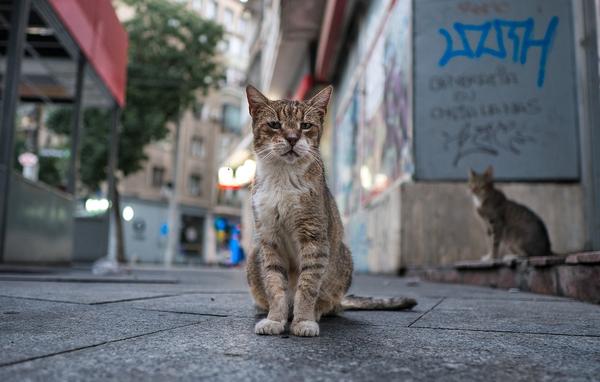
Let me know if you agree:
Do cats eat cockroaches?
It's a question that can trigger a wave of concerns.
Like, what if your feline friend munches on those creepy-crawlies? 🐱
It's enough to make your skin crawl.
But fear not, my friend.
Let's dive into this together and find some answers.
Is It Safe for Cats to Eat Cockroaches?
While cats may enjoy snacking on cockroaches, it is not safe for them to do so. Cockroaches can carry harmful substances like pesticides and unsanitary debris. Extended exposure can lead to stomach issues. If your cat shows digestive problems after eating a cockroach, consult a veterinarian.
Cats have a fondness for snacking on cockroaches.
These furry hunters instinctively find pleasure in hunting down and devouring these insects, but it may not be the wisest choice.
You ought to note that cockroaches harbor harmful substances that can endanger your beloved cat.
Through their travels, these little creatures often come into contact with toxic chemicals like pesticides, accumulating unsanitary debris along the way.
While an occasional roach consumption won't result in severe consequences, you ought to set limits on their intake.
Extended exposure to these potential hazards could lead to stomach issues for your feline companion.
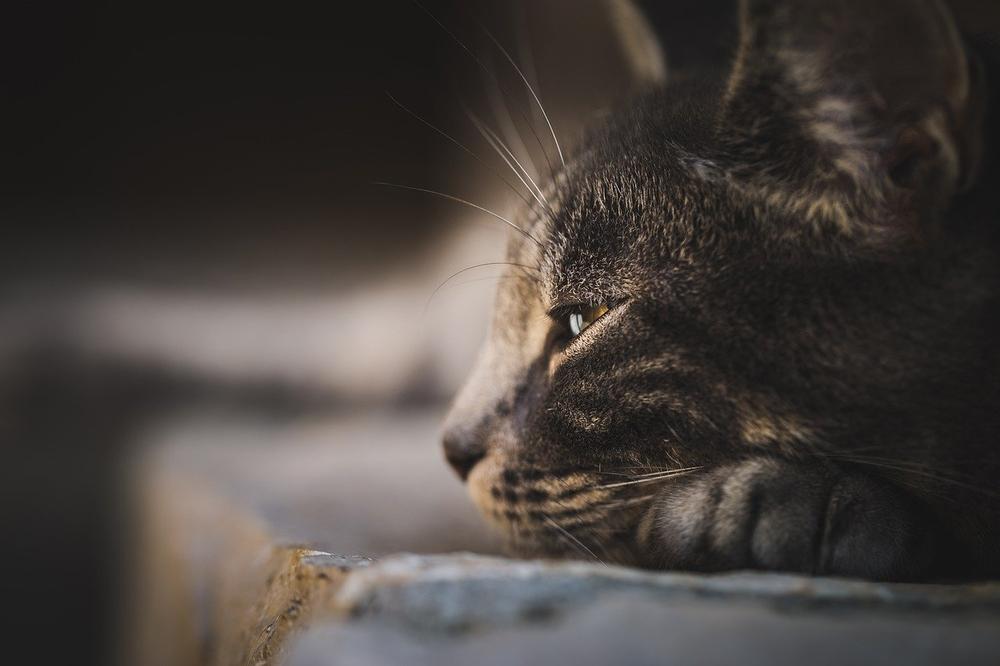
Here's what you should keep in mind:
Cockroaches are not just composed of bug goo.
They can also contain materials such as leather, paper, glue, and even skin flakes. Yes, it's quite disgusting.
If you observe any digestive problems or concerns arising after your cat feasts on a cockroach, it's best to take precautions and consult a veterinarian.
Therefore, monitor your cat's indulgence in cockroaches and prevent these unwanted pests from becoming a regular part of their diet. 😺
Main points I'll expand upon further down this article:
- Eating poisoned roaches can lead to chemical poisoning in cats.
- Cockroaches can carry pesticides or dangerous substances.
- Certain chemical pesticides can be harmful if contacted by cats.
- Insect sprays containing permethrin and pyrethrin are highly toxic to cats.
- Cats often hunt cockroaches more for the thrill of the hunt.
- Consuming a cockroach can lead to digestive disorders and pesticide consumption.
- Cockroaches carry bacteria, viruses, and parasites that can be harmful.
- Cockroaches can cause sore and inflamed skin and transmit diseases and parasites.
- Roach exoskeletons can be choking hazards and cause discomfort.
- Ingesting cockroaches can lead to digestive issues and potential health problems.
Now, you might be wondering...
If cockroaches themselves are not typically poisonous to cats, what about the potential dangers of eating poisoned roaches or cockroaches exposed to harmful substances?
Let's dive into the specifics and uncover the truth behind these concerns:
Can a Roach Poison Cats?
To keep your cats safe from roaches, here are 11 crucial steps you should follow:
- Keep the cat food and water far away from any cockroach activity.
- Regularly clean and sanitize areas where roaches usually hang out.
- Seal up any cracks or openings to stop those sneaky critters from entering your home.
- Instead of reaching for sprays filled with chemicals, opt for roach traps if possible.
- If you do choose to use insecticides, make sure they're marked as cat-friendly.
- Keep all pesticides and insecticides safely locked away.
- Get rid of dead roaches ASAP, so your cats won't be tempted to investigate them.
- Pay close attention to any changes in your cats' behavior or health, which could indicate poisoning.
- If you suspect your cats have come into contact with harmful substances, don't hesitate to seek veterinary help right away.
- Explore other ways to tackle roach control, such as natural repellents or professional extermination services.
- Engage your cats with plenty of toys and activities that satisfy their hunting instincts.
Preventing problems is key when it comes to safeguarding your furry friends from roach-related dangers.
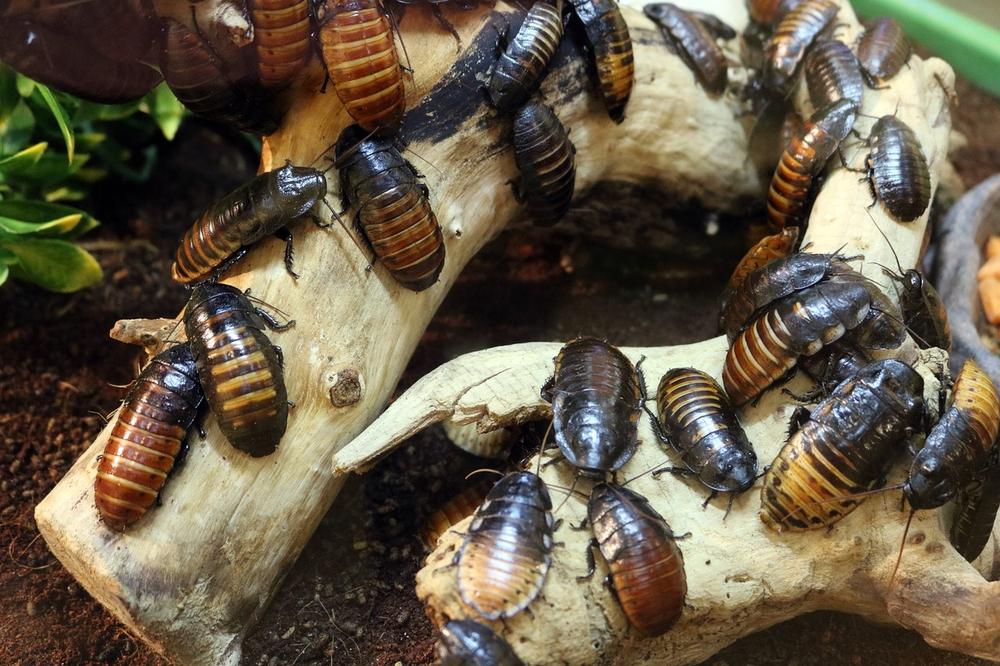
But what happens if your cat actually manages to catch and eat a cockroach?
The consequences may surprise you...
What Are the Risks if My Cat Eats a Cockroach?
Eating cockroaches may seem harmless to cats, but it comes with risks:
- Digestive disorders: While a single roach might not cause harm, larger quantities can lead to upset stomachs, diarrhea, and vomiting.
- Pesticide consumption: Some roaches may have ingested pesticides, which cats can consume when they eat them.
- Bacterial and viral infections: Cockroaches carry disease-causing bacteria and viruses that can be harmful to cats's health.
- Parasites transmission: Cats can become infected with parasites such as toxoplasmosis, salmonella, giardia, and stomach worms through cockroaches.
- Skin irritation and bites: Roaches can bite cats, causing sore and inflamed skin.
- Choking hazards: If cats don't chew cockroaches properly, their hard exoskeletons can present choking hazards.
- Throat injuries and discomfort: The indigestible parts of cockroaches can irritate cats' digestive systems, potentially causing throat injuries or discomfort.
You need to take precautions when cats come into contact with cockroaches to protect their health and well-being.
I highly recommend you check out my guide on Do Cats Eat Mosquitoes.
In it, I discuss whether cats can eat mosquitoes and if it is safe for them to do so.
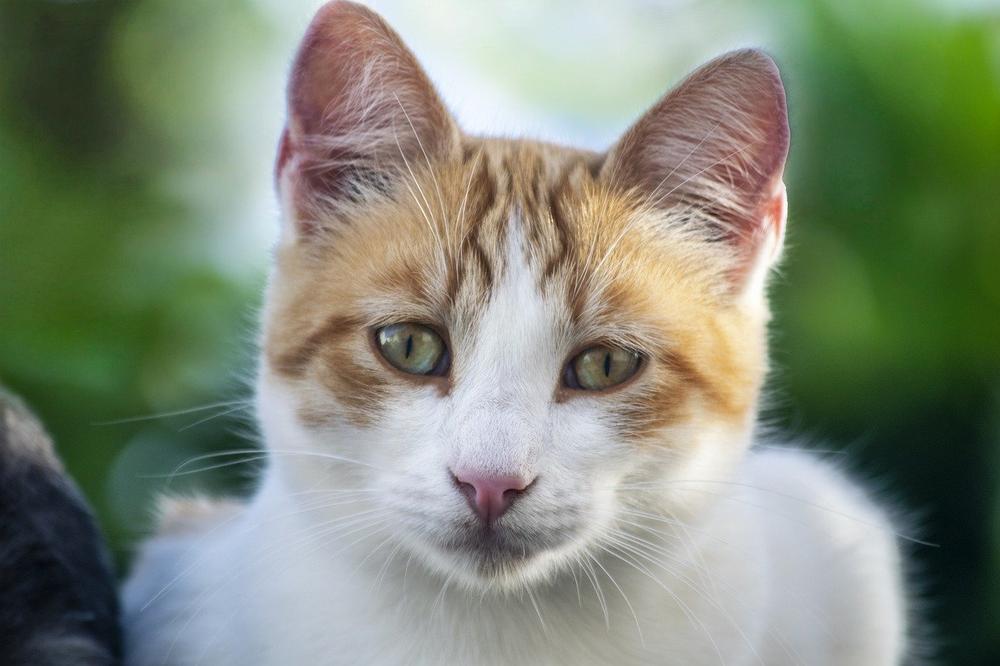
As we've seen, cats face various risks when consuming insects like cockroaches.
However, you may be wondering if the same holds true for mosquitoes.
To find out more, head over to my article.
It's important to have all the information you need to keep your feline friend safe and healthy.
What to Do if Your Cat Has Eaten Roaches
If your cat eats cockroaches and seems distressed, get them medical help quickly to avoid complications.
Keep a close eye on your little furball for signs of trouble after ingesting roaches.
Symptoms like vomiting, loose poop, drool, loss of appetite, sleepiness, shaking, or seizures are cause for concern.
Worming your kitty regularly can protect against infections caused by munching on roaches.
Stay vigilant and take care of your feline friend.
Preventing Cat-Roach Interactions: Effective Strategies to Keep Both Safe
| Strategies | Description |
|---|---|
| Proper Feeding Habits | Practicing good feeding habits for your cat, such as feeding them at regular times and cleaning their food bowls after each meal, can help minimize cat-roach interactions. Roaches are attracted to food scraps, so keeping the area clean and free of leftovers will deter them. |
| Clean Eating Area | Regularly cleaning your cat's eating area is essential to prevent cockroach infestations. Wipe down surfaces, remove water spills, and ensure there are no food crumbs left behind. A clean environment reduces the likelihood of attracting roaches and keeps both your cat and home safe. |
| Provide Safe Toys | Redirect your cat's hunting instincts by offering safe toys and environmental enrichment. Interactive toys that mimic prey can keep your cat entertained and satisfied, reducing their desire to chase and consume cockroaches. Choose toys that are suitable for your cat's size and play style. |
| Safe Cockroach Infestation | If you have a cockroach infestation, it's crucial to manage it safely without harming your cat. Avoid using harmful poisons or pesticides that may be toxic to cats. Instead, consider using natural alternatives or consult with a pest control professional who can provide pet-safe solutions. |
| Distract with Treats or Toys | If you notice your cat showing interest in a cockroach, distract them with treats or toys to redirect their attention. Offering a delicious snack or engaging them in play can help prevent any potential harmful interactions between your cat and the roach. |
| Clean Environment | Maintaining a clean home is vital in preventing cat exposure to cockroaches. Regularly clean and vacuum your house, paying extra attention to areas where roaches may hide. Seal cracks and crevices, fix any plumbing issues, and eliminate potential food sources to minimize roach activity. |
| Eliminate Food Sources | Cockroaches are attracted to food sources, so keeping your home free of crumbs, spills, and open food containers is essential. Store food in airtight containers, clean up after meals, and ensure garbage cans are tightly sealed. By eliminating their food sources, you discourage roaches from entering your home. |
Feeding your cat properly and keeping their food bowls clean can help prevent cockroach attraction.
Keep your cat's eating area clean and free of leftover food or spills that might attract critters into your home.
Clean up after meals and wipe down the surrounding area diligently.
Due to their quick movements, cats are naturally drawn to cockroaches, but no need to panic!
Instead of deterring them, redirect their playful instincts.
To stimulate their hunting behavior, consider using toys like laser pointers or robotic bugs.
These toys provide a safe and fun alternative for your cat's energetic playfulness.
Don't forget about environmental enrichment.
If cats aren't engaged enough, they can become bored and develop behavior issues.
Offer interactive toys, scratching posts, or puzzle feeders to keep them mentally stimulated and less interested in cockroaches.
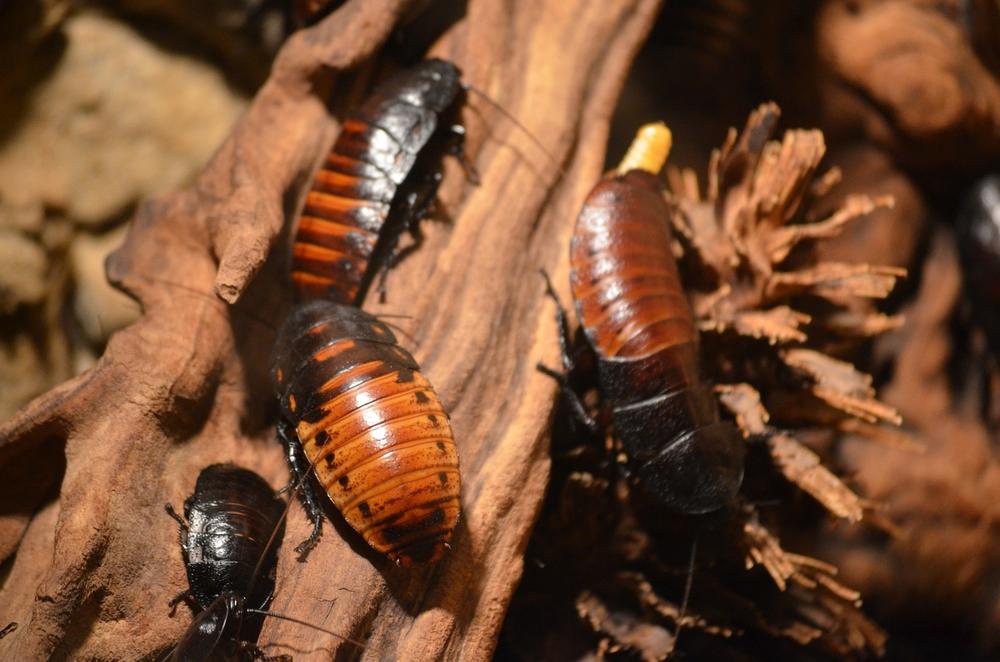
Now let's address the issue of cockroach infestations head-on while keeping your cat and living space safe.
First, distract your cat from hunting roaches by offering treats or playing with toys.
This will discourage any hunting attempts.
Keeping a clean home is crucial as cockroaches thrive in dirty environments with easily accessible food sources.
Keep things tidy to prevent attracting these pests.
If you ever have a cockroach infestation, avoid using poisons or harmful chemicals that could harm your cat.
Look for safer alternatives, and seek professional help if needed.
By implementing these strategies, you can create a safe environment where cats and cockroaches can coexist.
Remember, a clean and enriched space benefits everyone, including your beloved feline companion.
And if you're still curious about your feline friend's eating habits, don't forget to check out Can Cats Eat Grasshoppers, where I dive into whether it's safe for your cat to indulge in these hopping insects.
Explore the potential consequences and find out what's best for your furry companion.
And that wraps up today's article.
If you wish to read more of my useful articles, I recommend you check out some of these: Can Cats Eat Peppermint, Can Cats Eat Spinach, Can Cats Drink Tea, Can Cats Eat Mint, and Do Cats Eat Caterpillars
Talk soon,
-Sarah Davis